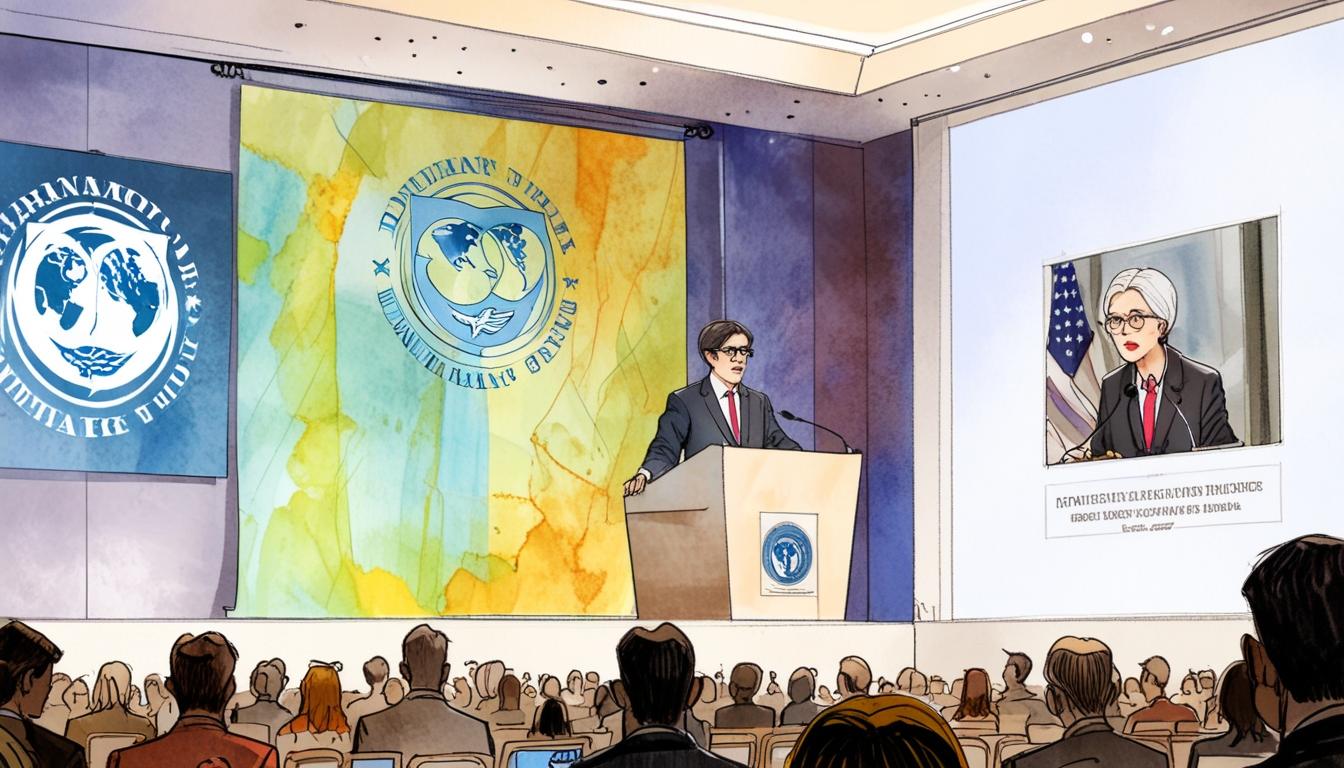Last week’s annual meetings of the International Monetary Fund (IMF) and World Bank in Washington took place amid widespread uncertainty about the United States' participation and stance under the administration of President Donald Trump. The global economic environment has been marked by turmoil linked to US policies, leaving many to question whether senior US officials would attend, and if so, what direction they would signal for international economic governance.
Contrary to fears of a US withdrawal or a disruptive approach, US Treasury Secretary Scott Bessent attended the meetings and delivered a significant speech outlining the administration’s perspective. Bessent reaffirmed that the US would not withdraw from the IMF or the World Bank. Instead, the Trump administration intends to leverage these institutions to advance “America-first” objectives but with some notable shifts.
In his address, Bessent urged the IMF to criticise China for “globally distortive policies and opaque currency practices” and called for a reduction in the institution’s focus on issues such as climate change, gender, and social matters. Regarding the World Bank, he advocated for an investment emphasis on nuclear power and gas, rather than prioritising renewable energy, and called on the Bank to cease lending to China, which is expected to soon “graduate” from eligibility for World Bank financial assistance. Bessent also highlighted the importance of IMF efforts to convene borrower countries and creditors to tackle “debt distress,” a growing crisis among lower-income nations struggling with unsustainable debt burdens.
The response to Bessent’s speech from other attendees was largely one of relief. According to a World Bank executive, these policy shifts, while significant, do not constitute a fundamental upheaval of the global financial institutions’ agendas. The executive noted that the viability of new nuclear power projects remains doubtful economically, thus the Bank's energy investment strategies may not require substantial adjustment. Meanwhile, although the demand to reduce discussions on climate change could be accommodated, many participants recognised that climate risks remain crucial economic considerations that will continue to influence investment decisions.
IMF Managing Director Kristalina Georgieva reinforced the call for urgent debt restructuring for some of the poorest countries during her own remarks at the meetings. She emphasised the profound economic challenges aggravated by US trade policies and global uncertainty. The IMF’s World Economic Outlook, released the same week, downgraded growth forecasts worldwide and attributed the deterioration largely to the erratic imposition and suspension of US tariffs, describing the resulting conditions bluntly as a “trade war.” It highlighted that the most severe impact is borne by the poorest and most vulnerable nations.
US tariffs announced in recent months, although temporarily suspended, comprise hikes exceeding 40% on goods from several low-income countries—including Lesotho, Madagascar, Myanmar, and Syria. Many of these countries contribute negligibly to the US trade deficit but will nonetheless face devastating economic consequences. For instance, Lesotho's textile industry, which accounts for more than 10% of its GDP and supports up to 30,000 jobs exporting apparel such as Levis and Wrangler jeans to the US, is threatened by tariffs up to 50%. Similarly, Madagascar, a major vanilla producer vulnerable to climate shocks like droughts and hurricanes, faces tariffs of 47%, compounded by declining US aid.
Debt distress is a critical dimension of the challenges confronting low-income countries. The IMF estimates that approximately half of the poorest nations are in or at high risk of debt distress due to heavy borrowing over the past decade, often from private creditors and Chinese banks. These debts are becoming harder to service amid rising global interest rates ignited by inflationary pressures following the COVID-19 pandemic, while economic recoveries remain fragile. According to the United Nations Conference on Trade and Development (UNCTAD), over fifty developing countries spend at least 10% of government budgets on debt interest, often exceeding allocations for health or education.
The situation is further complicated by the impact of climate change, which exacerbates humanitarian and economic vulnerabilities through frequent extreme weather events. This diverts resources towards disaster relief and undermines agricultural productivity, creating a cycle of higher borrowing costs and diminished growth.
In response to these intersecting crises, intense discussions took place at the margins of the IMF and World Bank meetings. World Bank Chief Economist Indermit Gill, the UN Secretary-General’s adviser Mahmoud Mohieldin, and prominent economists such as Joseph Stiglitz and former Argentine Finance Minister Martín Guzmán participated in forums addressing sovereign debt reform. A significant report entitled Healthy Debt on a Healthy Planet, authored by an expert group commissioned by Colombia, Kenya, France, and Germany, was launched in Washington. The report outlines a comprehensive reform agenda targeting the “triple crisis” of indebtedness, climate change, and environmental degradation experienced by many low-income countries. It recommends that the IMF and World Bank more fully integrate climate and biodiversity considerations into their economic and financial analyses, institute novel debt relief mechanisms linked to enhanced investments in climate resilience, and expand financing options including “debt for nature” and “debt for climate” swaps alongside private sector mobilisation.
The discussions and documents released during the Washington meetings signal a possible shift in global economic governance discussions, particularly around debt relief and climate adaptation financing. South Africa, which currently holds the presidency of the G20 group of major economies, has committed to prioritising debt relief in its agenda for the year. While there was skepticism that neither China nor the United States would compromise, the engagement of the US Treasury Secretary may open the door for broader international cooperation. Developing nations are now keenly watching to see if China will join talks on debt restructuring and climate investment, potentially altering the dynamics in managing the global economic and environmental challenges ahead.
Source: Noah Wire Services
